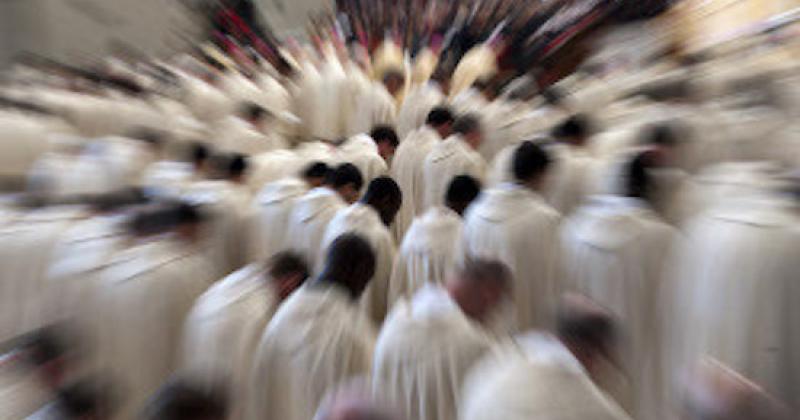Much attention has been given to the "Letter to Priests" that Pope Francis published on August 4, on the 160th anniversary of the death of St. John Marie Vianney, Curé of Ars.
The pope made it clear he wanted to feel close to priests, at a time when they are often "ridiculed and made to feel guilty for crimes they have not committed."
Above all he thanked them for the care they take for the People of God and encouraged them in the face of their possible feelings of "doubt, fear and lack of trust."
So what does the letter tell us about how Francis views his role in the Catholic Church?
It was a message that conveyed intimacy, says Father Luc Forestier, Priest of the Oratory and Director of the Institute of Ecumenical Studies at the Catholic Institute of Paris.
"What strikes me from the outset in this Letter to Priests, with its very fraternal tone, is that Pope Francis as Bishop of Rome signs it from Saint John Lateran, and not from Vatican City," says Father Forestier.
"He speaks of 'my diocese' and also cites his former Archdiocese of Buenos Aires, to remind us that he was a priest before being a bishop and that he positions himself as an elder brother and father."
Father Forestier also noted a difference in tone from Francis' previous statements.
"What is absent in this letter is the word "clericalism," which may have been misunderstood," he says.
"Instead, the pope insists on the temptation to flee to a safe place. Here, there is no question of 'guichet' or 'length of homilies,' as was the case in the motu proprio Vos estis lux mundi(You are the light of the world) last May, in which the pope imposed on priests the obligation to denounce sexual abuse, of which they would be aware."
There was also, he says, an urging for priests to constantly recall why they had devoted themselves to the Church in the first place.
"In this Letter to Priests, the most important thing is the 'yes' given one day and which commits the priest for the rest of his life," Father Forestier points out. "Hence his invitation to return to these luminous moments of the Lord's call: what he calls 'the deuteronomic memory of our vocation.'
"This point is central because the pope reminds us - as he said in his Letter to the Holy People of God in Germany, published on June 29 - that to reform the Church, it is not so much a question of finding recipes and advancing through reorganization, but of entering into a pastoral conversion."
A DEEPER IMMERSION
Father Forestier believes Francis is not advocating a search for new answers but a deeper search for trusted ones.
On this "pastoral conversion," he explains: "This is achieved through the double bond that the priest must maintain with the person of Christ and with the Christian people."
"There is no need to seek new recipes but to enter more deeply into the care of the people. And this appears well in all three aspects of this letter, since in suffering, as in gratitude and praise, there is a link between priests and the people of God," he said.
Hence his insistence, at the beginning of this letter, on the suffering of the victims and that of the priests, is to be lived as "a time of purification of the Church to live happier and simpler."
For the pope, it is truly God who acts and allows priests and all the faithful, through "our humble repentance," to be saved. This is part of Francis' personal experience, as his motto, "Miserando Atque Eligendo," (Because he saw him through the eyes of mercy and chose him) — taken from a homily by the Venerable Bede regarding the calling of St. Matthew by Jesus — reminds us."
